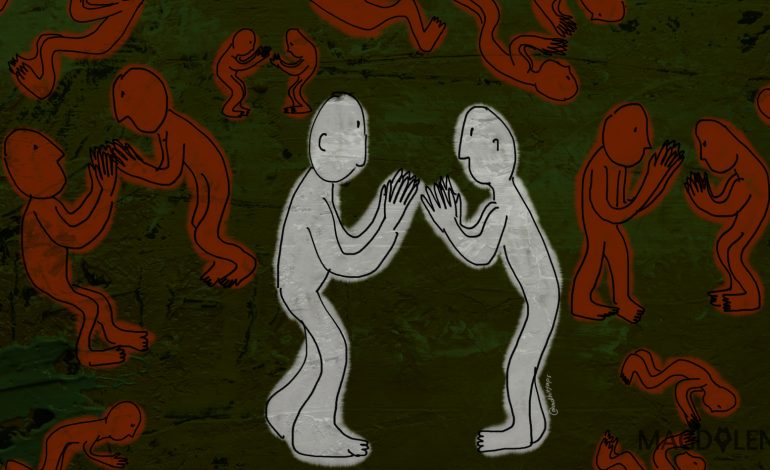How Work from Home Impacts Stay-At-Home Mom Heavily

Aside from medical workers, stay-at-home moms must be some of the people who have seen their workload drastically increased during the lockdown in the time of COVID-19 pandemic. As most workplaces imposed the working-from-home policy, the stay-at-home moms must have been getting busier at home. Children and husbands who usually spend their activities at school and work in the day time are now at home, leaving their mothers/wives scrambling to serve their needs. For working women, the burden multiplies as they now must juggle work and household chores. The condition worsens in households where patriarchal values and systems are strongly entrenched.
This writing refers to stay-at-home moms in heterosexual relationships, although it can also apply to homosexual couples. In no way, I am dismissing the role of stay-at-home dads, who are much smaller in number compared to stay-at-home moms. I also acknowledge the characteristics of women who often take on multiple roles: as wife, mother, working woman, among others.
From the point of view of existentialist feminist, all women are positioned to have full power over choosing their status and role in society, including to be against or to accept social norms and values shaped by the concept of patriarchy. Being a stay-at-home mom is a choice that is not a problem if a woman is realistically conscious and has the freedom to choose to take on the role and job as a stay-at-home mom.
“Existence precedes essence”, according to Jean Paul Sartre in the book Existentialism and Humanism (1946). It roughly means: You come first in the world, then you define yourself. If there is a woman in their journey of life then consciously decides to leave their job to raise children at her own will, then she has realized the consequences that come from that choice and has made an informed decision.
Also read: Pandemic Shows How the Future is Not for Everyone
However, being a stay-at-home mom doesn’t make her the only person responsible for the entire household. This often happens in heterosexual families anywhere in the world. When women consciously or unconsciously take on the role of a stay-at-home mom, the entire house would act like the “masters” who only want to know if all the work is done for them to enjoy.
There are also people who think doing domestic work is a woman’s “nature.” I don’t think the people who believe that don’t really know the definition of nature and its difference with the concept of gender roles as a sociocultural construction.
Working involves physical, mental and emotional labor. There’s a lot of emotional labor as a stay-at-home mom because aside from herself, she also has to carry the emotional weight of her spouse and child. The concept that a woman must be a nurturer is an old-fashioned view that stacks up heavy pressure on every woman.
If studied further, the distribution of non-fluid gender roles also adds pressure of their own to men who are positioned to have to be able to receive income, not show emotions and act masculine.
The understanding of a family about fluid gender roles can increase harmony in a family because it doesn’t restrict one’s freedom based on their gender. The assumption is women might like it if their male spouse cooks at home for his wife and kids. Vice versa, men might like it if their female spouse would assist in lifting the water gallon or fixing the broken fan.
Also read: Fear of Being a Housewife
Surely we’ve heard plenty of stories from women around us who are upset with their spouses or families because they have to take care of all the household chores. But they do it anyway because it’s like they’re not given any other option. Situations like this are like ticking time bombs ready to explode at any moment.
In the time of COVID-19 pandemic families are challenged to divide household chores fairly. We are challenged to start (or to try to start) getting used to proportional shares of household chores. It might be tough for the mom who’s so used to caring for the house alone to delegate her tasks to other family members. For that, the child and spouse should start taking the initiative to cooperate in household matters.
In the future, I imagine the working world will be far more flexible and would implement work from home policy more routinely. Logically, working from home benefits employers because it cuts off operational costs such as electricity, internet, water, and rent. But the impact might spread to the well-being of the stay-at-home moms if the household labor is centered on her, so an equal role distribution must start early.
R.A. Kartini and Simone de Beauvoir would be sad (or furious) if they find out that after hundreds of years, there hasn’t been any significant improvements towards gender equality. Women are still considered second class people positioned lower than men.
As a final remark, have you at least said “thank you” to your mom today?
Translated by Tabina Amarilla from the original version in Indonesian, this article is supported by Splice Lights On Fund grant fromSplice Media.
If you or someone you know need help to get out of domestic or online violence, contact Komnas Perempuan at 021-3903963 or [email protected]); or Lembaga Bantuan Hukum Asosiasi Perempuan Indonesia untuk Keadilan (LBH APIK at 021-87797289, WA: 0813-8882-2669, and [email protected]). Click the complete list of all service institutions/organizations here.






















